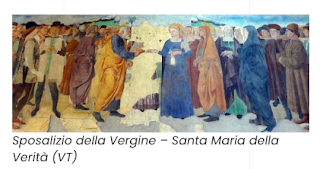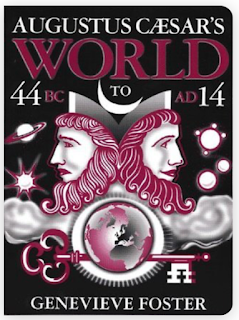 |
| somewhat random stack of books |
I put hearts by the books that I liked the most. Dark red ♥️ are ones I liked most in that category. Double hearts 💕means I read it twice/love it more than all others (*I read the Bible three times). And if not for audiobooks 🎧, I think my year would have been so much worse off! I wouldn't have “read” much of anything!! I did have a few re-reads 📖, and I will do that again next year, though I may not put them on the 5×5.
Fiction-Historical
Flight of the Heron, D. K. Broster ❤️🎧 - Bonnie Prince Charlie time period (18th century Scotland) (this was a book that another bestseller is based off of; I thought very well done but not enough to read the series)
All Clear, Connie Willis 💗 📖 - WWII, England (time travel) (I just love this series!! ahem, except “To Say Nothing of the Dog”… 🫣)
Not Saying Goodbye, Boris Akunin - 1918-1921 during the Russian Civil War (my book to “Finish a series” …which I did not finish…there’s one more book that I’m not reading)
Count of Monte Cristo, Alexandre Dumas 🎧 - 1815-1838, France and Italy (exceptional book…but a bit of a weird ending lol)
Matagorda, Louis L’Amour - late 19th century Texas (a good surprise Bahamas Little Free Library read!)
Christmas
Christmas Reindeer, Thornton Burgess (sweet story)
L. M. Montgomery Christmas Collection, Smidgen Press ❤️ 🎧 (wonderfully compiled!)
Letters from Father Christmas, J. R. R. Tolkien ❤️ 🎧 📖 (so fun and sweet! makes me wish I’d done FC with my kiddos)
The History of the Nutcracker, Alexandre Dumas
(The Haunted Man and The Ghost’s Bargain) or (The Chimes), Charles Dickens(this was… odd… I’d never actually heard/watched/read the story that the ballet is based off)Winter Fire: Christmas with G. K. Chesterton, Ryan Whitaker Smith (was alright, not as good as I’d hoped… maybe I’ll appreciate it more next year)
Self-Improvement
The Holy Bible* 💕 🎧 📖
Mindset, Carol Dwick 🎧📖 (a bit different the second time through… my perspective is different)
7 Habits of Highly Effective People, Stephen Covey ♥️ 🎧 (need to read this again and apply what I learn!)
A Bit of the World’s Work, Anne E. White (love Anne’s writing!!)
Consolation of Philosophy, Boethius 🎧 (need others to “work through” this one with)
History- Non-American
Vanished Kingdoms: The Rise and Fall of States and Nations, Norman Davies ♥️ 🎧 (2nd Davies book and I think he may be my favorite history author of late)
History of Sweden, Captivating History 🎧 (interesting enough to learn about other Scandinavian countries)
Little Book of Language, David Crystal 🎧 (I honestly don’t remember much of this one at all… oops)
History of Norway, Captivating History 🎧 (interesting enough…)
History of Denmark, Captivating History 🎧 (still interesting enough…)
extra: (The Anarchy: the East India Company, Corporate Violence, and the Pillage of an Empire), William Dalrymple 🎧just not going to get it finished in ‘24; good though!
Free Reads
The Holy Bible 💕 🎧 📖 (nothing better)
The Mirror Crack’d From Side to Side, Agatha Christie 🎧 (Christie is just so good; I did figure whodunit fairly quickly)
Peace Like a River, Leif Enger ♥️ 🎧 📖 (beautiful… lol but I know “haters gonna hate” 😆)
Piranesi, Susanna Clarke 🎧 (what did I just read?! lol jk… it was very interesting but was confusing at first)
Singing Silently, Ezra Manes (a surprise poetry Bahamas Little Free Library read!)
extra: The Ickabog, J. K. Rowling ♥️ 🎧 (really really liked this one!!)
- extra: The Underworld: Journeys to the Depths of the Ocean, Susan Casey 🎧 (so interesting! I am terrified of the ocean so learning about crushing depths gave me a wee bit of anxiety but I was so intrigued the whole time- our God has made such an amazing world!)
So now that I am planning for '25, I will take note of previous years' success/weakness and (hopefully) plan accordingly. I am using graph paper to keep track of my reading progress with each book, marking out so many boxes to represent the total page count per book. Each square will represent between 10-30 pages, depending on the book. I will fill in the box when I complete so many pages. It'll help me visualize my goal.
I am also shopping from my shelves as much as possible this time around (I've said that before!). I had created a list of hopefuls at some point near the end of '24 but I seriously have no recollection of how I came across many of the titles and I didn't add author names either! How bizarre! (It is by no means the most bizarre thing I have found myself to have done...but anyway.) Most of that list I do not own so while I will keep it for reference, I decided on a whole new plan.
I always read history and education (and the Bible, which I didn't even add to this list because it's a given). The rest of the categories are usually flexible.
Key: 📚= I own a physical copy;
✅= library borrow/Hoopla;
🅺= I own a Kindle copy;
💻= online (might print)
🎧= audiobook
Books in bold are ones I've added since my original posting 12/30/24
(Books in parenthesis are books that fit more than one category)
History (Non-fiction)
Bauer - History of the Ancient World (774 pp) 📚
Bauer - History of the Medieval World (663 pp) 📚
Bauer - History of the Renaissance World (678 pp) 📚
Larson - The Splendid and the Vile (503 pp) 📚
open
Education
CM Vol. 4, Bk II - Ourselves (200 pp) 📚
CM Vol. 3 - School Education (247 pp) 📚
(Hicks - Norms and Nobility (157 pp) 📚)
(Wiker & Witt - A Meaningful World (252) 📚)
open
Nature/Seasons
Gooley - The Secret World of Weather (332 pp) 📚
Horvitz - Night Sky Tracker (111 pp) 📚
Old Farmer's Almanac 2025 (256 pp) 📚
Lehner - Folklore and Symbolism of Flowers, Plants, and Trees (124 pp) ✅
Ignotofsky - The Wondrous Workings of Planet Earth (121) 📚
Math
Orlin - Math with Bad Drawings (345 pp) 📚
Bellos - Here's Looking at Euclid (336 pp) 🅺
open
open
open
Other
Substack - Up to 5 articles per week (~260 pp) 💻
Hawke - Rules of a Knight (175) 📚
Gooch - Do Not Lose Heart (232) 📚
(Ellul - Propaganda (352) 📚)
Fleming - Casino Royale 🎧 ✅
Bookclub Reads
WLC
Baehr - Wormwood Abbey (230 pp) ✅ (Jan. 17, 2025) - finished 01/05/25
Martin - Wrapped in Rain (336 pp) ✅ (Feb. 21, 2025)
Barr - The Making of Biblical Womanhood (256 pp) ✅ Mar. 21, 2025)
Dickens/Collins - No Thoroughfare (120 pp) 📚 (Apr. 25, 2025)
AO Forum
Ellul - Propaganda (352 pp) 🅺 (TBA)
Wiker/Witt - A Meaningful World (252 pp) 📚 (Jan. 6-Jun. 9, 2025)
Sophie Sistership (Schole Sisters)
Hicks - Norms and Nobility (157 pp) 📚
I am sure this list will change over the year but I am hopeful that at least these first books will be successfully read because they are ones that I really want to read. The Bookclub Reads are not ones of my choosing necessarily but I have committed to participate so I will do my best to follow through. It is kinda nice that I have hard timelines for those ones.
Here's to a great reading year! But more importantly may it be a year of reading widely, thinking deeply, and applying faithfully!










